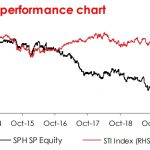Business loan negotiations are important before putting pen to paper and sealing that deal
By: Hitesh Khan/
Before signing on the dotted line of the loan papers, you’ll want to consider a variety of other monetary and non-monetary costs to help you determine the real cost of borrowing.
 Business loan negotiations are important because the final cost of borrowing money often involves much more than just the interest rate.
Business loan negotiations are important because the final cost of borrowing money often involves much more than just the interest rate.
Table of Contents
A variety of other monetary and non-monetary costs should be considered in determining the real cost of borrowing. For example, a loan that requires you to maintain certain financial ratios may be unrealistic for your particular business. Your checklist for reviewing the costs of a bank loan should include:
- Direct financial costs, such as interest rates, points, penalties and required account balances
- Indirect costs and loan conditions, such as periodic financial reporting, maintenance of certain financial covenants and subordination agreements
- Personal guarantees needed to obtain the loan
Assessing the Direct Financial Costs
It goes without saying that the financial costs of a loan are important considerations for business loan negotiations or when you shop. But you may not be aware of everything that fulls under the umbrella of “direct financial costs.”
As you crunch the numbers on the financial costs, keep these main loan features top of mind.
Business loan negotiation should ensure that you have a fair interest rate percentage
Any interest rate that exceeds the bank’s prime rate should be considered negotiable. Now, that negotiable range is likely to be very small, but even an eighth of a point in interest can be a meaningful amount to your business. You should expect to pay a point or two over the bank’s prime lending rate. Generally, the longer the term of the loan, the higher the interest rate.
Competition among banks makes shopping around for the best rates worthwhile. Occasionally, a local bank may decide that it needs to increase its small business lending by aggressively discounting its rates for a limited time period to new borrowers. Unfortunately, these banks often don’t do a good job of advertising their programs and you might not discover an attractive rate unless you actively investigate.
https://www.icompareloan.com/resources/personal-guarantee/
Working with Loan Specialists
This is one good reason why you need to work with trusted loan specialists . Loan specialists are able to not only pre-qualify you with multiple lenders and compare rates and terms, they are also able to get you the best personal loans which has costs and payments that fit into your budget.
To lower the cost of borrowing, try to convince your lender to give you a better rate. You should negotiate with your lender and they may be willing to cut the interest rate to secure your business, and so the loan will cost you less. If you are uncomfortable about negotiating, you should engage the services of a loan specialist.
Loan specialists will not only be able to negotiate a better rate for you, they will also be able to help you compare the best personal loan offers from among the different ones given by the many banks. It also makes sense to engage loan specialists because their services are usually free.
Protecting Your Variable Interest Rate
Banks often prefer floating interest rates in making small commercial loans to minimise the already significant risks of lending to a small business. As a borrower, you should try to negotiate a maximum interest rate cap on any variable rate. That way you have some idea of your maximum exposure on the loan.
https://www.icompareloan.com/resources/getting-loans/
Buying a Fixed Interest Rate
In some instances, you might also consider “buying” a fixed rate from the lender. Many banks will offer a fixed interest rate for a rate slightly higher than the current floating rate, e.g., an additional 1/2 percent. Both you and the bank are speculating whether the prime rate will rise or fall and how quickly the rate may move.
Minimising Points or Fees
Upfront bank charges for a loan can be assessed for:
- Reviewing and preparing documents
- Performing credit checks
- Simply agreeing to give you a loan
Points are one-time charges computed as a percentage of the total loan amount and the costs are amortized over the length of the loan. On lines of credit, some institutions may charge a commitment fee for keeping credit available to you. This fee typically runs approximately half a point or less on the unused portion of the credit line.
When doing business loan negotiations, try to challenge and reduce any and all points as fees. It never hurts to ask, and lenders will often budge slightly.
Always be mindful that banks do not approve all applications from small businesses, in fact up to one in four fail (depending on the prevailing economic environment). The reasons can be many and varied, so this is why it is important to seek feedback from the bank as to why. This feedback can provide some valuable insight into the weaknesses of the business and/or your application. This is also the reason why business loan negotiations are important.
One best small business loan tips most people won’t give you is to not wait until you are desperate to ask for money. This is not a good foundation for a successful loan application. The bank wants to feel secure in its decision. It does not want to hear that your business needs the loan to survive; it wants to hear that your business needs the loan to grow.







